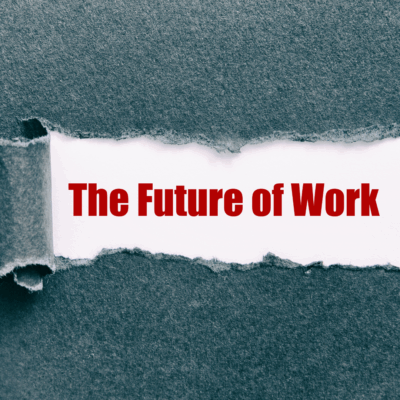How Employee Relations Shapes the Future of Work
Earlier this week on “America Back to Work,” Arnette Heintze sat down with Brad Eddy, a seasoned HR professional and consultant who currently serves as senior manager, employee relations business partner at HelloFresh, to discuss employee relations.
With a career that has transitioned from generalist roles to the strategic positioning of employee relations within HR programs, Eddy brings a unique perspective on the importance of fostering positive employee experiences to drive business growth.
The Heart of HR Evolution
Brad Eddy’s journey into HR, much like many in the field, was one of discovery and evolution.
“I always saw this hallway where people would go and talk to whoever was in that hallway and come back either smiling or frowning,” Eddy recalls, sparking his curiosity about the effectiveness of HR on employee well-being.
His career path, underscored by roles across various organizations, including his own consultancy, highlights a deep commitment to enhancing the employee-employer relationship.
Employee Relations: A Strategic Pillar
Eddy views employee relations as a crucial component of HR, emphasizing its role in managing risk, policy, and, most importantly, the employee experience.
“We really focus on risk and policy, trying to have the organization create policies that are employee-centric,” he states, highlighting the shift towards policies designed with the employee’s growth and satisfaction in mind.
This approach mitigates risk and promotes a positive workplace culture that values transparency and open communication.
Navigating the Pandemic’s Effect
The pandemic posed unprecedented challenges for HR, pushing companies to rethink their approach to remote work, employee well-being, and communication. Eddy’s immediate concern during this period was how to maintain employee engagement and company culture in a suddenly remote world.
“These were uncharted times for everybody,” he reflects, emphasizing the swift pivot to remote work and the necessity of supporting employees’ mental health.
The Great Resignation: A Predictable Outcome
The pandemic-induced shift in work dynamics led to what many refer to as the Great Resignation. Eddy saw this as somewhat predictable, given the reassessment of work-life balance and job satisfaction by many employees.
He notes, “As remote work continued, we saw employees kind of reassess their work-life balance, their job satisfaction, which led to a lot of people just making shifts in their career priorities.”
Employee Relations in the Post-Pandemic World
Looking ahead, Eddy sees the landscape of employee relations continuing to evolve, with a sustained focus on remote and hybrid work models, mental health and well-being, and the integration of technology in HR practices.
“I think there’s still going to be an increased focus on remote and hybrid work models,” he predicts, underscoring the lasting effect of the pandemic on workplace flexibility.
Best Practices for Conflict Management
Conflict is inevitable in any workplace, but Eddy advocates for early intervention and open communication as key strategies for conflict resolution.
“Address conflicts promptly as they arise,” he advises, highlighting the importance of listening and providing fast, constructive feedback to prevent escalation and foster a positive work environment.
The Future of Employee Relations
As companies navigate the post-pandemic landscape, the role of employee relations in building trust, credibility, and a strong company culture cannot be overstated. Eddy’s insights provide a roadmap for HR professionals looking to adapt to the changing needs of the workforce and ensure their organizations remain competitive and compassionate places to work.







